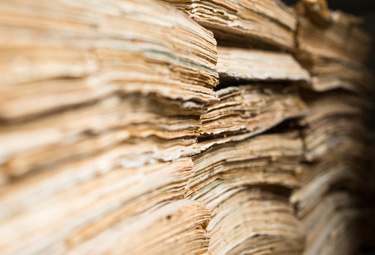 History is an important part in everyone’s learning and linking the past and the present is necessary to find the right path towards the future. Therefore, historical documents need to be preserved for the present and future generations. Document scanning companies offer efficient solutions for preserving those documents. They help libraries and museums preserve valuable documents in paper format by scanning them using high-end scanners, ensuring top quality digital files that can be efficiently stored on computers or the cloud for future use.
History is an important part in everyone’s learning and linking the past and the present is necessary to find the right path towards the future. Therefore, historical documents need to be preserved for the present and future generations. Document scanning companies offer efficient solutions for preserving those documents. They help libraries and museums preserve valuable documents in paper format by scanning them using high-end scanners, ensuring top quality digital files that can be efficiently stored on computers or the cloud for future use.
According to a report in www.npr.org, an attempt to preserve South Carolina’s historical documents through lamination has backfired. In the early 1950s, the state’s archives and history department laminated documents like presidential papers, constitutions ranging from those written during the Revolutionary War through Reconstruction, personal slave journals, old maps, manuscripts and other important historic documents to prevent them from aging. However, South Carolina’s historical laminated documents are in poor condition because they have turned brown. This discoloration is due to a chemical reaction in which toxic vinegar is formed when the degraded lamination mixes with the natural acids in the paper.
The laminated documents face the risk of becoming extinct if they are not treated well. Eric Emerson, director of the state archives and historical department, said that they are trying to keep those documents in a clean white odor-free zone.
A researcher from Johns Hopkins University pointed out that South Carolina is not the only state with the lamination problem; this practice was followed around the U.S. and other countries throughout the 20th century. Up to 6 million historical documents were laminated because it was a cheap and easy way to preserve them. After 10 years the curators began noticing the problem: the odor of vinegar.
The state conservator has started delaminating documents, a process that involves removing the cellulose acetate coating by immersing the documents in an acetone solution, and washing them in an alkalized water bath to remove acidic components left over from the degraded laminate and to rehydrate the cellulose fiber of the paper.
Digitization services are available to save all types of documents from degradation. According to the report, Texas archivists have resorted to scanning their collection of historical documents including the 1836 treaty between state commissioners and the Cherokee Indians. The advantages of digitizing historic documents are:
- Preserves documents for further research and for future generations
- Reduces the use paper and saves physical storage space
- Boosts public accessibility
Document scanning service companies utilize state-of-the-art technologies and methods to ensure high quality depiction of the content in fading and damaged documents.



